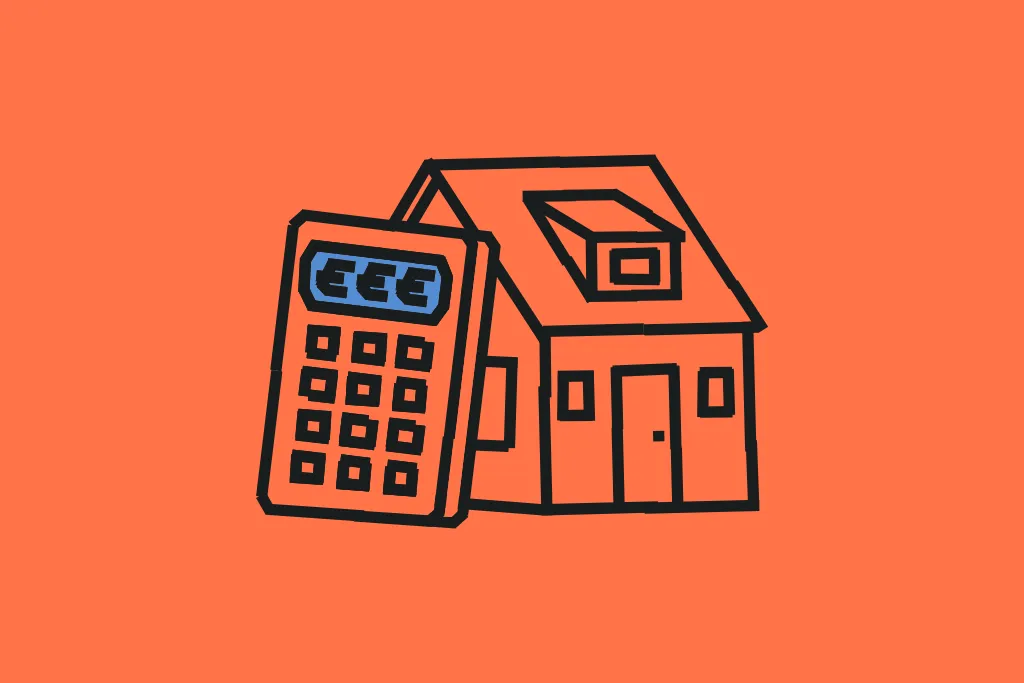What is the cost of withdrawing €100,000 in excess value?
You're thinking about withdrawing €100,000 in excess equity. Maybe for a remodel, a second home or to pay off your debts. But what are the costs? And what does it mean for your monthly expenses?
Below you can see what you will pay at an interest rate of 5% and a term of 30 years. The amounts are for a new loan in the form of an additional mortgage part.
Cost summary at €100,000 excess value withdrawal
| Cost item | Amount |
|---|---|
| Gross monthly expenses | €537 |
| Net monthly expenses | €370 |
| Total interest (30 years) | €93.000 |
| Mortgage Advice | €2000 - €3500 |
| Appraisal fees | €850 |
| Notary fees | €400 - €800 |
| Closing costs | ± €250 |
| Total one-time costs | €3250 - €5150 |
So in total, you pay back almost €193,000 for withdrawing €100,000 in excess value. That sounds like a lot, but a long term means lower monthly payments. As a result, you pay more interest over the years. You repay quietly, without it weighing heavily on your monthly budget.
In addition to your monthly expenses, you will also face one-time costs. Think of advice, valuation costs, notary fees and closing costs. These are between €3250 and €5150. Many of these additional costs are deductible on your tax return.
You can withdraw your surplus value by increasing your existing mortgage or taking out a second mortgage. What's the best fit depends on your current mortgage and your financial situation.
Do you doubt whether it's wise to take out €100,000 in excess value? An independent mortgage consultant will be happy to help you. In a free consultation you will get immediate insight into your options, monthly costs and what is smart in your situation.
{{cta}}
Monthly expenses include €100,000 excess value
When withdrawing a large amount such as €100,000 in excess value, your monthly expenses are especially important.Because the higher you borrow, the greater the impact on your budget. And you want to know that well in advance.
Suppose you take the surplus value through a new mortgage or by increasing your existing mortgage. At an interest rate of 5% and term of 30 years, you pay:
- Gross monthly expenses: €537
- Net monthly expenses: €370
- Total repayment: €193,000
You pay interest and repay. In this way you build up capital and repay the amount in full. So you don't get a residual debt at the end of the term.
What if your interest rate is different?
Mortgage interest rates have a lot of impact on your monthly expenses. See:
- 4% interest: €477 gross per month
- 6% interest: €600 gross per month
Do you choose a short fixed-interest period? Then your interest rate is often lower. But you run the risk of higher monthly payments after that period expires. It's important to look to the future and make sure your financial situation remains affordable.
Can it also be grace-free?
Yes, you can. You can also withdraw the amount on an interest-free basis. With an interest-free mortgage of €100,000, at 5% interest, you pay about €417 per month. Your debt then remains in full. This results in low monthly costs, but no accumulation of wealth.
Note that this is allowed only if you have sufficient income and it fits within your financial situation.
What else does your monthly burden depend on?
The amount of your monthly burden depends on several factors:
- Your current mortgage and whether you can increase it
- Your choice of an additional mortgage or second mortgage
- Your income and existing debts
- Whether you choose repayment or interest only
- The value of your own home and whether you have sufficient excess value
So how you arrange the withdrawal of the surplus value will help determine your cost per month. Get good advice from an experienced mortgage broker.

One-time cost withdrawal €100,000 excess value
If you withdraw €100,000 in excess value, you will pay one-time costs in addition to monthly fees. You only incur these when taking out a new mortgage or increasing your existing mortgage. After that, you don't have to worry about it anymore.
Below is a summary of the costs associated with withdrawing the excess value:
- Mortgage advice - €2000 to €3500. An advisor reviews your financial situation, compares providers and arranges your new mortgage part.
- Appraisal fee - €850 including VAT. The house value is redetermined. This is necessary to show that you have sufficient excess value.
- Notary fees - €400 to €800. The notary draws up a new mortgage deed and arranges registration at the Land Registry.
- Closing costs - ± €250. Some lenders charge this when you take out a loan or new mortgage part.
On average, one-time costs are between €3250 and €5150. That seems like a lot, but much of this is deductible on your tax return. These costs are necessary to take the surplus value as a new mortgage part or second loan. The exact cost depends on your needs, your current mortgage and the provider you choose.

Is withdrawing surplus value wise?
With €100,000 in excess equity, you can take big steps. Think about buying a new house, financing a second home, or making your current home completely sustainable. But withdrawing such a large amount also means: higher monthly costs and more interest over the entire term.
Whether it's wise depends on your plans, your income and how firmly your home is in the market. This chart shows you when €100,000 withdrawal is usually a good choice and when it is not:
Want to know more about all the situations when withdrawing capital gains is and is not wise? In this article, you can read exactly when it is and is not wise to withdraw capital gains.

Inclusion of excess value costs in other amounts
Don't want to withdraw exactly €100,000 in excess value, but a different amount? Then it's helpful to know what additional monthly fees and one-time costs are involved. Check out the costs of withdrawing surplus value at other amounts here:
- What does €10,000 excess value withdrawal cost?
- What does €20,000 excess value withdrawal cost?
- What does €30,000 excess value withdrawal cost?
- What does €40,000 excess value withdrawal cost?
- What does €50,000 excess value withdrawal cost?
Unsure about how much equity you want to withdraw? Schedule a mortgage consultation with an independent mortgage broker.

Here's how to calculate home equity
Withdrawing €100,000 sounds appealing, but it will only work if you have enough excess value. That excess value arises because the value of your home has increased. Your house is valued higher than your original purchase price. You do the simple math: home value minus your outstanding mortgage.
Your home is worth €500,000. You still have €400,000 of mortgage outstanding.
500,000 - 400,000 = €100,000 excess value
Is the difference large enough? Then you can increase your mortgage or take out a second mortgage to draw down this amount.
Not sure if it's possible in your situation? Read how to calculate your excess value here or request a free consultation with a mortgage advisor.

Frequently asked questions cost €100,0000 surplus value withdrawal
At €100,000, more doubts often come into play. How does withdrawing surplus value work, and what exactly do you pay per month? In the frequently asked questions below we provide clear answers, so you know what you're getting into.
What are the risks of withdrawing a large amount of excess value?
You borrow a large amount, so your monthly expenses increase. With a mortgage increase of €100,000, you face extra monthly costs, longer term and the risk of higher interest rates in the future. Do you opt for repayment-free? Then the debt remains fully outstanding. Get good advice.
What does withdrawing €100,000 in excess value cost per month?
At a 5% interest rate and 30-year term, it will cost you about €537 gross per month. Net is around €370. You pay interest and repay. You can take the surplus value as an increase in your mortgage amount, or through a second loan. The amount varies by situation.
What does €100,000 mortgage grace free cost?
With a €100,000 grace-free mortgage, you pay only interest. At 5% interest, that's €417 a month. You don't repay anything, so your debt remains. This is only possible if you have sufficient income. Keep in mind the risk of a lower home value or a house that no longer increases in price.
What can you do with €100,000 in excess value?
Many people use €100,000 in excess equity for a major remodel, a second home, or to pay off a personal loan. Others use it to supplement their assets or retirement. What's smart depends on your home value, plans and tax situation.
What does €100,000 extra mortgage cost?
For a mortgage increase of €100,000, at 5% interest and a 30-year term, you pay about €537 gross per month. Net is about €370 per month, depending on your income and mortgage interest deduction.
In addition, you pay one-time costs averaging €3250 to €5150. Think of advice, notary and valuation costs. You can deduct some of these costs from your taxes. Sometimes you get a lower interest rate if your home has increased significantly in value.

{{vragen}}




